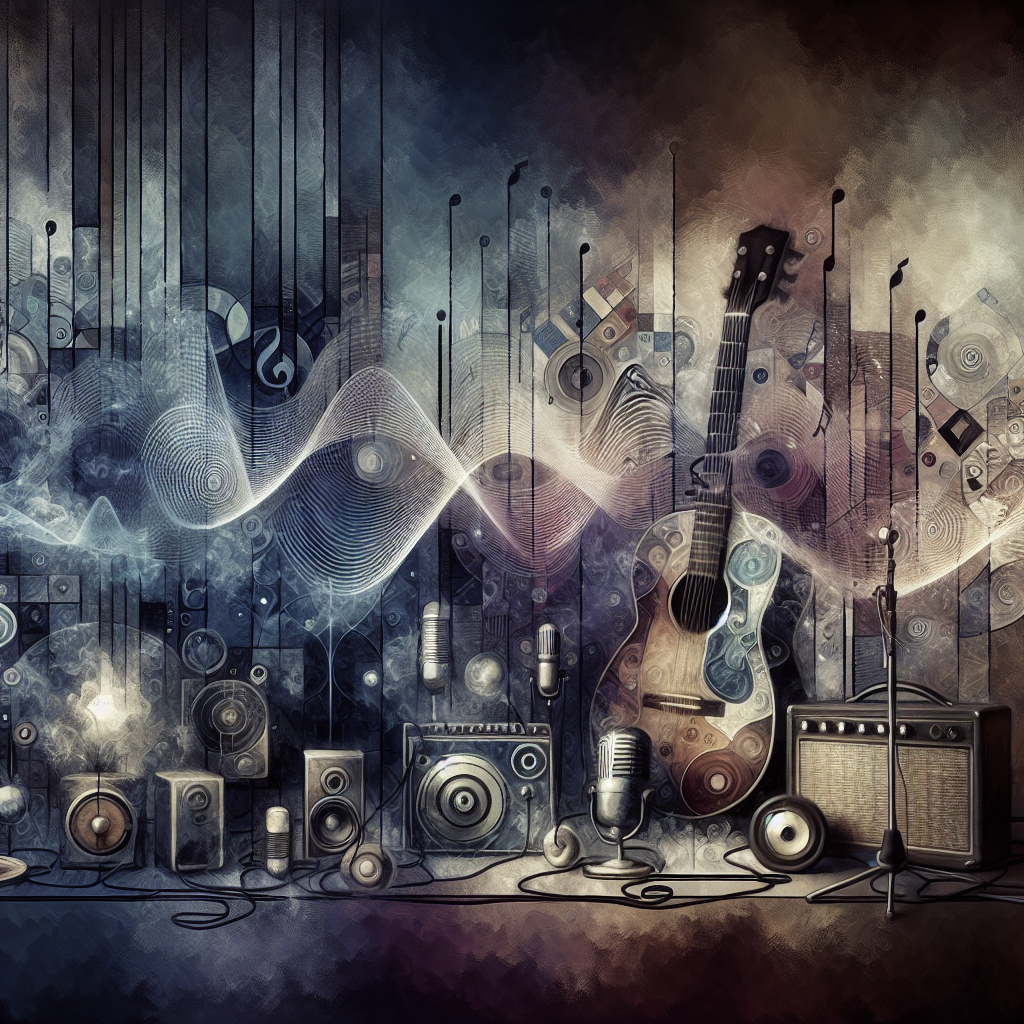Title: Rediscovering Timeless Nostalgia: A Deep Dive into Love’s "Alone Again Or"
Introduction
In the pantheon of rock history, few bands can claim the enigmatic allure and historical significance of Love, an American rock band that emerged during the turbulent 1960s. Their music, characterized by a fusion of folk-rock, psychedelic elements, and baroque influences, remains a testament to the innovative spirit of that era. "Alone Again Or," a standout track from their seminal 1967 album Forever Changes, epitomizes the quintessence of their artistry. In this reflective analysis, we explore the significance of "Alone Again Or," highlighting its themes, lyrical content, and musical techniques, while situating it within Love’s career and broader cultural context. Through an exploration of its legacy and influence, we aim to rediscover the timeless nostalgia embodied in this classic track.
The Significance of "Alone Again Or" in Love’s Career
At the height of the psychedelic rock era, Love carved a unique niche with their third studio album Forever Changes. Released in November 1967, the album marked a departure from the raw rock sounds of their earlier work, delving into a more introspective and sophisticated realm. "Alone Again Or," the album’s opening track, captures this evolution. Written by Bryan MacLean, the song is one of the most enduring examples of the eclectic and richly textured sound that defined Love’s contribution to the music landscape. Despite the album’s initial underwhelming commercial performance, it has since achieved legendary status, cementing Love’s place in rock history.
Thematic and Lyrical Exploration
"Alone Again Or" is a tapestry of emotional complexity, woven together by themes of longing, existential reflection, and the elusive nature of love. Lyrically, the song juxtaposes visions of romantic disillusionment with a yearning for connection. The opening lines, "Yeah, said it’s all right / I won’t forget / All the times I waited patiently for you," invite listeners into a space of introspection, where love is both celebrated and mourned.
The recurring notion of being "alone again or" suggests a duality: the acceptance of solitude versus the hope of rekindling love. This ambivalence is a recurring motif throughout Forever Changes, reflecting the broader social and personal uncertainties of the late 1960s—a time when ideals were both exuberantly embraced and critically questioned. MacLean’s lyrics, though personal, resonate with universal emotions, allowing listeners to project their own experiences onto the song’s canvas.
Musical Techniques and Impact
Musically, "Alone Again Or" is a masterclass in blending folk, rock, and orchestral elements. The song opens with an intricate acoustic guitar riff that sets a contemplative tone. This is soon complemented by Mariachi-style brass, a bold and unexpected choice that enriches the track’s auditory palette. The orchestration, featuring strings and horns, creates a lush soundscape that elevates the song’s emotional depth.
Arthur Lee’s production expertise is evident in the song’s layered arrangement. The harmonies—delivered with precision and warmth—underscore the lyrical themes of solitude and connection. Particularly striking is how the melancholic verses give way to a rousing instrumental bridge, where the interplay between the brass section and strings evokes a sense of both grandeur and introspection. This dynamic range is a hallmark of Forever Changes, showcasing Love’s ability to innovate within the rock genre while drawing from diverse musical traditions.
Cultural, Social, and Historical Contexts
The release of Forever Changes coincided with a period of significant societal upheaval. The late 1960s were characterized by civil rights movements, political protests, and a shifting cultural landscape that questioned traditional norms. In this milieu, Love’s music provided a soundtrack for a generation grappling with profound change.
"Alone Again Or" reflects this zeitgeist not only through its thematic exploration of love and solitude but also as a symbol of artistic innovation. The album, with its eclectic influences, embodied the era’s spirit of experimentation and cross-cultural exchange. The inclusion of Latin musical elements, for example, can be seen as an artistic reflection of Los Angeles’ diverse cultural tapestry, where Love was based.
Legacy and Lasting Influence
Today, "Alone Again Or" is often lauded as one of the defining tracks of its era, maintaining a timeless appeal that continues to resonate with new generations. Its influence can be seen in the works of countless artists across genres, from alternative rock to indie and beyond. The song’s intricate melodies and rich arrangements have inspired musicians to explore complex sonic landscapes, proving that Love’s artistic vision was ahead of its time.
The track’s legacy extends beyond its musical composition; it represents a touchstone in the narrative of rock history—a reminder of a time when boundaries were blurred, and fresh sounds emerged from the crucible of social change. This enduring relevance speaks to the universality of its themes and the innovative brilliance of its execution.
Reflective Questions and Takeaways
As we contemplate the enduring relevance of "Alone Again Or," several questions come to the fore: How does this song, and the album it belongs to, continue to speak to the human experience in contemporary times? In what ways does Love’s music challenge or reinforce our understanding of the cultural dynamics of the 1960s? Can the nostalgic longing expressed in "Alone Again Or" offer solace or insight into the complexities of modern life, where connection and solitude exist in new forms?
Ultimately, the power of "Alone Again Or" lies in its ability to transcend its era, inviting listeners to embark on a journey both inward and outward. It encourages reflection on our personal relationships, our cultural identities, and the ever-changing world around us. As we rediscover the timeless nostalgia embedded in Love’s music, we are reminded of the unifying power of artistry to capture the essence of human emotion across generations.
Got more questions? Our personalized Music Explorer AI assistant is here to help. Click here to start a conversation!
[Advertisement]
Curious about the deeper messages in your favorite songs? Discover how ANY track relates to positive biblical principles with Music and Scripture GPT from BGodInspired.com. Click here to uncover insights you might not have noticed!
[Advertisement]

